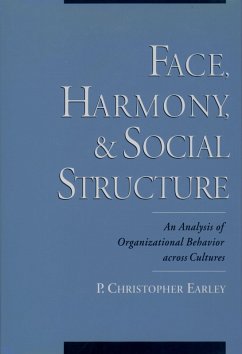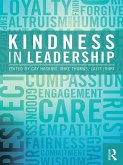Face, Harmony, and Social Structure continues author P. Christopher Earley's investigations of the differences among people within organizations in different cultures. The concept of "face," as set forth by Earley, is a reflection of the individual's struggle for self-definition and understanding, of which a key component is a positioning of self relative to others is a social setting. Face is at the heart of social behavior and provides a consistent linking mechanism to understand behavior across cultures. Earley uses this concept of face as a basis for examination of cross-cultural organizational behavior from an individual's personal perspective. In this work, he develops a mid-range theory of individual behavior, self-concept, and interpersonal process in an effort to explain cultural differences in organizational settings. He sets up a cross-level model, and then attempts to provide a single coherent force--"face"--as an engine driving the entire system that can be used to integrate various social and organizational mechanisms in predicting people's behavior. This understanding of how and why people behave certain ways is a critical tool for studying the impact of individual behavior on the functioning of organizations. Earley's work represents a new theory of self-presentation and face within a cross-cultural context, integrating a cross-level approach ranging from the individual to the organization and to the societal levels of discussion.
Face, Harmony, and Social Structure is a truly interdisciplinary work that brings elements of psychology, sociology, and anthropology to organizational studies. It will be illuminating reading for professionals and scholars of management and organizational behavior, as well as to academics in cross-cultural psychology and anthropology.
Dieser Download kann aus rechtlichen Gründen nur mit Rechnungsadresse in A, B, BG, CY, CZ, D, DK, EW, E, FIN, F, GR, HR, H, IRL, I, LT, L, LR, M, NL, PL, P, R, S, SLO, SK ausgeliefert werden.









